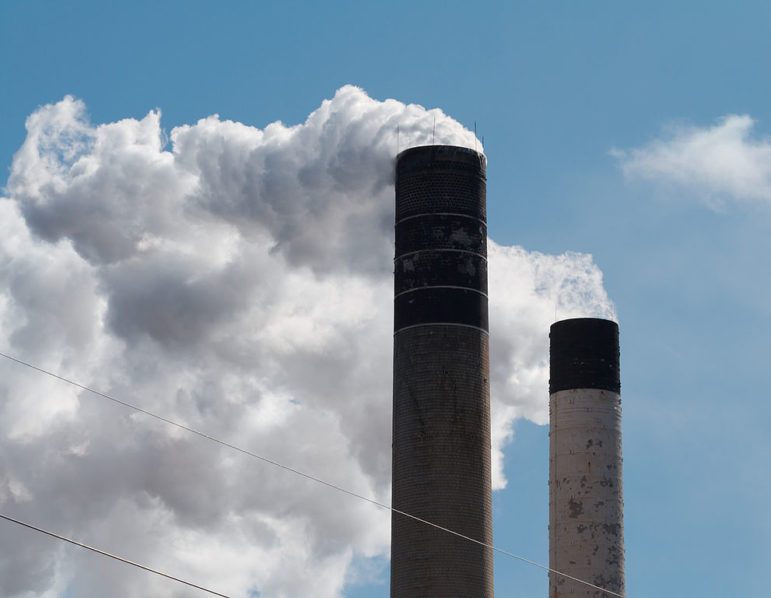
While we take to the streets across New York and the nation to protest a longstanding history of police brutality, members of black and brown communities are forced to simultaneously suffer – both physically and financially – as a result of the ongoing coronavirus pandemic.
These two phenomena – death at the hands of law enforcement and disproportionate suffering wrought by an invisible biological foe – might seem unrelated. But the reality is that they are inextricably intertwined, both the result of deep-seated and systemic racial inequalities that have plagued this country for decades.
It is time for our leaders to recognize that the illness of inequality requires a holistic treatment. Protecting Black and brown communities calls for an overarching approach that addresses everything from economics, health care and education to law enforcement and even the very air we breathe. Across the board, it’s critical that every avenue is explored to improve the lives most vulnerable in our city and state.
Given that preliminary data has correlated long-term exposure to air pollution with higher coronavirus mortality rates, improving air quality by shuttering or repowering fossil-fueled plants located in urban environmental justice communities should be a top priority.
One way to achieve this goal is through carbon pricing, which will incentivize the energy industry to quickly close or retrofit these high-polluting plants, known as “peakers”, by placing a so-called “social cost” on their harmful emissions.
The burden of air pollution is not evenly shared. Environmental justice communities have long been plagued by health disparities and vulnerability due to peaker plants. When energy demand in New York City rises, these generators spew harmful emissions into neighborhoods like Sunset Park, the South Bronx, and other under-resourced communities. Several of these peaker units date back to the 1950s and have been operating in the city for decades without any modern pollution-control equipment.
Not only are residents in these areas already more susceptible to many illnesses, including respiratory ailments like asthma, new research from the Harvard School of Public Health has revealed a clear link between long-term exposure to pollution and COVID-19 death rates. According to Francesca Dominici, a professor of biostatistics at Harvard who led the study, counties with higher pollution levels “will be the ones that will have higher numbers of hospitalizations, higher numbers of deaths, and where many of the resources should be concentrated.”
 CityViews are readers’ opinions, not those of City Limits. Add your voice today!
CityViews are readers’ opinions, not those of City Limits. Add your voice today!
Even more striking, the paper found that if Manhattan had lowered its average particulate matter level by just a single unit – or one microgram per cubic meter – over the past 20 years, the borough would have seen roughly 248 fewer COVID-19 deaths in April.
That’s 248 lives that could have been saved if only we had acted sooner to make the air in inner-city communities cleaner. We cannot bring those lives back, but we can act now to address the tragic conditions that contributed to their untimely deaths and to prevent future casualties.
With social and environmental inequality creating an outsized impact of the virus, the need to rapidly reduce pollution is a moral, ethical and public health imperative. Carbon pricing, as proposed by the New York Independent System Operator (NYISO), can help transition New York to an equitable renewable energy economy and end this long-standing pollution burden on the city’s most at-risk populations.
Statewide, it is estimated that adding 1,500 MW of energy storage would avoid 1 million tons of carbon emissions. This would contribute to the reduction of greenhouse gases, which is absolutely essential to avoiding catastrophic climate changes and reducing future illnesses caused by poor air quality.
As the nation navigates this unprecedented health and economic crisis, the historic and disproportionate burdens imposed on environmental justice communities – particularly in New York – are a serious public health threat and can no longer be ignored.
Short-term fixes are not the answer. The state needs to move now on policies that will establish long-term and lasting changes to improve air quality for vulnerable residents and begin to address the underlying conditions that make African Americans, Latinos and other minority populations disproportionately vulnerable to the pandemic.
The environmental justice community must join the moral movement for equality and call for the Cuomo administration to support carbon pricing and make the health and welfare of vulnerable New Yorkers a top priority – before it’s too late.
Reverend Reginald Lee Bachus is a founding member of The 400 Foundation, a faith-based effort to advance racial and economic justice.








One thought on “Opinion: Carbon Pricing and Racial Justice in New York”
Thank you for this article!